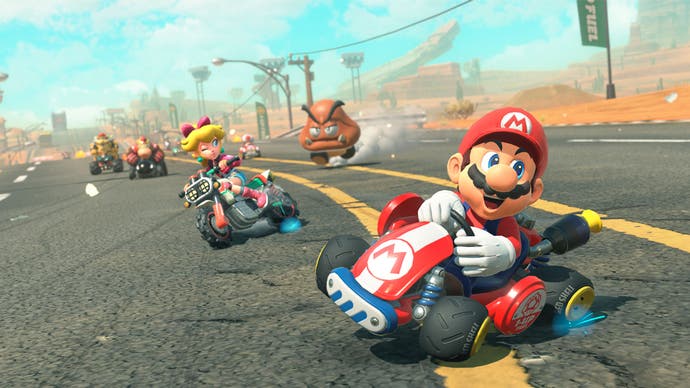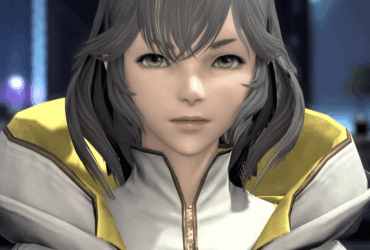Japanese game stocks have dropped following the announcement of major tariffs on trade to the US.
US president Donald Trump imposed wide-reaching trade tariffs last week, with some of the highest levies targeting countries which also happen to be critical centres of video games hardware manufacturing.
We are now seeing some of the impact these tariffs will have on companies. As shared by industry analyst Dr Serkan Toto, on Monday morning at 10am Japan time, Nintendo’s stock was down by 7.35 percent. Meanwhile, Sony has seen a drop of 10.16 percent, Bandai Namco -7.03 percent, Konami -3.93 percent, Sega -6.57 percent, Koei Tecmo -5.83 percent, Capcom -7.13 percent, and Square Enix -5.23 percent.
“The mobile game companies do even worse,” Toto wrote on social media.
Earlier this month, Entertainment Software Association (ESA) senior vice president Aubrey Quinn said these tariffs will “have a real and detrimental impact” on the video games industry. Quinn’s comment follows on from industry analyst Daniel Ahmad’s own, where the Niko Partners director of research and insights said:
“While the company has shifted some of its manufacturing to Vietnam to offset US tariffs on China, the looming threat of reciprocal tariffs prior to the Switch 2 showcase will have also forced Nintendo to consider a higher price for the rest of the world. The reciprocal tariffs on Vietnam and Japan have come in higher than expected, and Nintendo will feel the impact of this if the tariffs go into full effect.”
Back in February, Sony took some preventative measures to protect itself from the then impending tariffs, which included stockpiling PlayStation 5’s in the US. This will provide the PS5 maker a “temporary buffer against the impact of tariffs,” Ahmad wrote over the weekend. However, as Ahmad notes, Sony’s business is wider reaching than just its PlayStation consoles.
As for the PS5, “Sony would need to assess how quickly it can move production of US units to Japan (lower tariff rate: 24 percent) and how many would be produced in China (higher tariff rate: 54 percent), and how quickly it can start producing in Vietnam (Est 2026),” Ahmad wrote on X.
“The firm would then need to evaluate how these tariffs impact current profit margins and how much they would need to increase hardware prices for the consumer. There could also be a potential impact on accessories and game pricing depending on how Sony wants to pass on costs.”
Ahmad continued: “The good news is that the initial stockpiling + Japan manufacturing + PS5 being mid to late gen at this point (profitable on per unit basis) + PS5 Pro likely priced at $700 in anticipation of some potential tariff impact, means that even with a price increase, the increase may not be as significant as it would be for new tech products.
“However, there is still so much uncertainty around tariffs at this point, which won’t actually go into effect until April 9, that no one knows if tariffs will end up higher, lower or removed entirely at some point.”

Last week, Nintendo announced it was making the unprecedented decision to delay Switch 2 pre-orders in the States. The company cited the impact of Trump’s tariffs as well as “evolving market conditions” as the reason for this delay.
Nintendo still expects to release its Switch successor on 5th June in the US, as originally planned.
For more on the console, our Tom has already been hands-on with the Switch 2. You can read his Switch 2 impressions here.
fbq('init', '560747571485047');
fbq('track', 'PageView'); window.facebookPixelsDone = true;
window.dispatchEvent(new Event('BrockmanFacebookPixelsEnabled')); }
window.addEventListener('BrockmanTargetingCookiesAllowed', appendFacebookPixels);












Leave a Reply